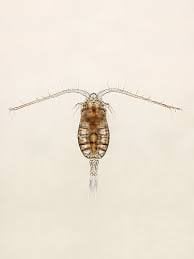Big hello guys and I'm needing to catch, isolate and cultivate a particular type of Copepod. The guy I need to get my hands on is Parvocalanus Crassirostris. Unfortunately here in Australia Parvocalanus Crassirostris is not available commercially which is a real pain in the butt because I know Reed Mariculture DO supply this little guy but it's not available for export to Australia. I do also know that they are quite a common Copepod free floating in ocean water not too far away so thinking wild caught might be my only way (although I did think of contacting a University to see if they possibly could assist with this/could sell me a starter culture). This also might be an interesting piece of info. for those looking at breeding because this particular strain of Copepod is the "go to" for raising larvae stage Centropyges (a dream fish for many want to be breeders!). So my question might be a little scientific based but hoping someone might have some experience with catching Copepods via ocean water sampling and then isolating particular strains they required. From what I'm researching it appears you can use different scales of micron net to isolate size wise. It also appears they may need to be isolated via microscope and safe colour injection to spot and isolate the guy needed! Any experience or tips greatly appreciated as this is all foreign to me.
*PS if you reside in the US and are interested in breeding dwarf angels this is your "go to" strain and you can start a culture a whole lot easier by purchasing a bunch of adults from Reed Mariculture! This still isn't totally straightforward though as they only prey on certain live microalgaes and if stocking density is mishandled both with food supply and the Copepods themselves you will crash the culture. Tricky little bugger!

*PS if you reside in the US and are interested in breeding dwarf angels this is your "go to" strain and you can start a culture a whole lot easier by purchasing a bunch of adults from Reed Mariculture! This still isn't totally straightforward though as they only prey on certain live microalgaes and if stocking density is mishandled both with food supply and the Copepods themselves you will crash the culture. Tricky little bugger!

Last edited:


















